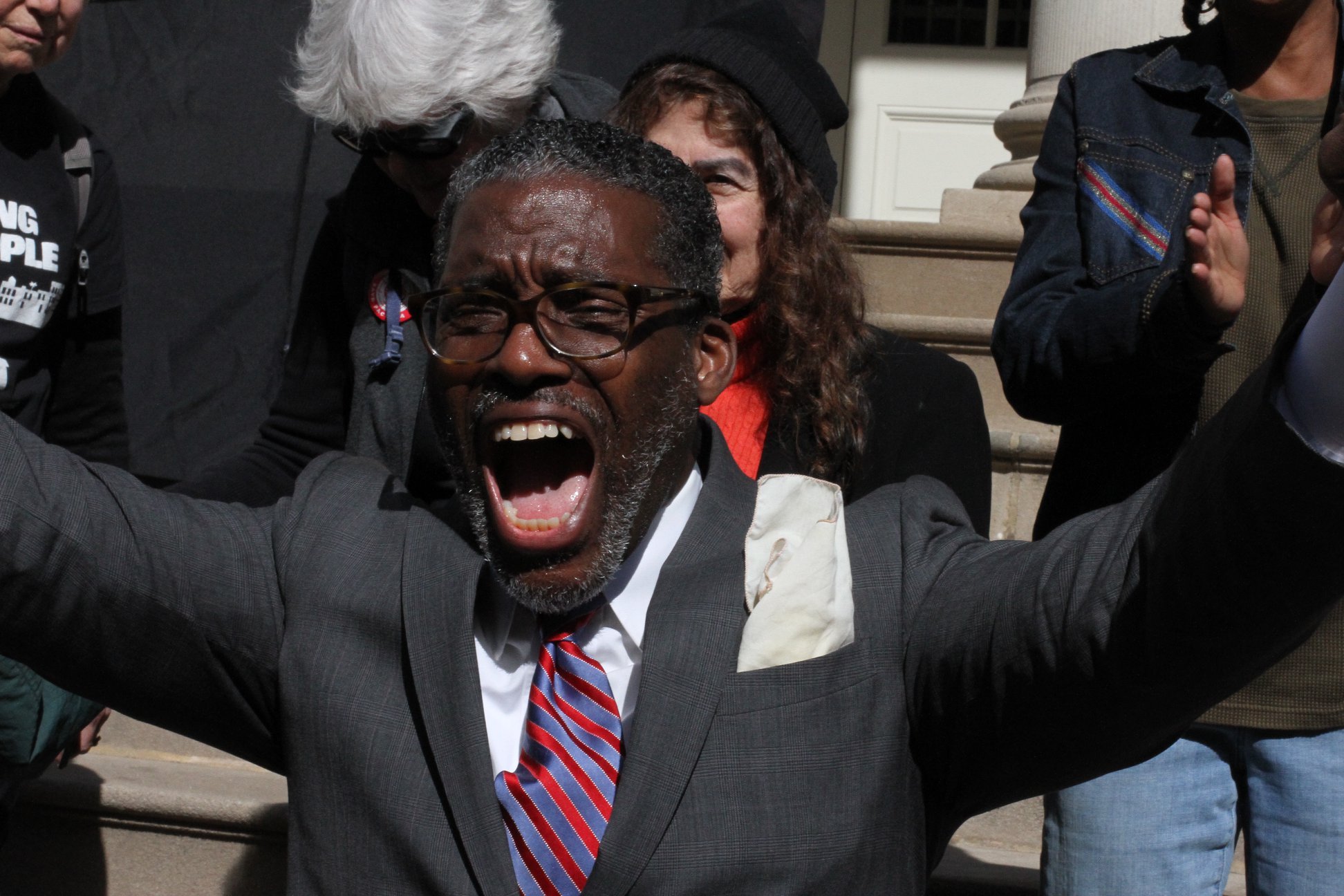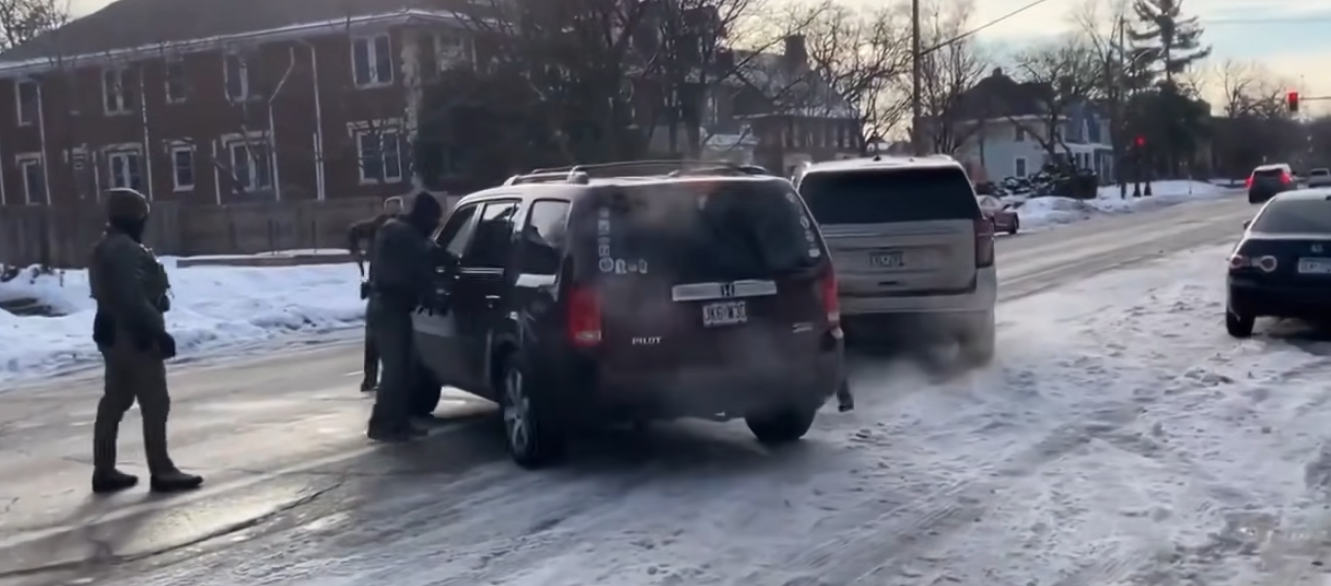WBAI is a listener-supported New York City radio station with a 60-year history of radical political dissidence and groundbreaking cultural programming. During the 1960s it was the first to send a reporter to broadcast from North Vietnam during the Vietnam War. It was also among the first to give significant air time to Bob Dylan, and it featured the prominent voices of Black liberation including Malcolm X, Dr. Martin Luther King and members of the Black Panther Party. More recently it has aired the voices of Black Agenda Report writers and editors, and, on Randy Credico’s show “Live on the Fly,” that of Julian Assange before his arrest and incarceration in London’s Belmarsh Prison.
On Oct. 7, WBAI was seized by Pacifica’s interim executive director and a minority of the Pacifica National Board, who took over the airwaves and the website and shut down locally produced programming, much to the dismay of its staff and listening audience. All programming produced at the station’s local studios was suspended and replaced with programming piped in from three of the other four metropolitan stations in the Pacifica Network – KPFA-Berkeley, KPFK-Los Angeles and KPFT-Houston – along with two daily hours of Democracy Now, three daily hours of The Thom Hartmann Show, and other syndicated shows, including the Ralph Nader Radio Hour.
There’s no evidence that the takeover was racially motivated, but the shutdown is of particular concern to Pacifica’s Black community because WBAI-NYC and WPFW-Washington D.C. have the greatest number of Black hosts and listeners thanks to their demographics, and many believe that WPFW is also targeted for a shutdown. New York City is roughly 25 percent Black, and Washington, D.C., 49 percent Black.
Houston is 25 percent Black, but Black voices have been less prevalent at KPFT-Houston than at WBAI and WPFW. Los Angeles, home to KPFK, is 11 percent Black, Berkeley 8 percent. KPFA-Berkeley broadcasts into San Francisco, which is 6 percent Black at best, and into the wider Bay Area, most of which is significantly less so: Alameda County 12 percent, Contra Costa County 0.6 percent, Marin County 3 percent, Santa Clara County 3 percent, Santa Cruz County 0.1 percent, Sonoma County 0.3 percent, Suisun County 0.7 percent and Solano County 0.8 percent.)
Legal and national board wrangling
The WBAI community immediately found a pro bono lawyer. The national board members behind the takeover were able to deploy Pacifica’s lawyer, despite being a minority on the board. A number of programmers and listeners associated with KPFA-Berkeley’s “Rescue Pacifica” caucus staged a protest outside KPFA in support of WBAI.
The shutdown of WBAI was particularly ill-timed because it shut down a WBAI fund drive that was reported to be going well, and because it was done just a week before Local Station Board elections at all five stations. The Local Station Boards elect representatives to the national board, so it is hard to imagine that the takeover wasn’t timed to preclude a significant shift in the balance of power on the national board. A majority met and voted to reverse the takeover and return WBAI to WBAI on Sunday, Oct. 13, but the minority are still holding onto the airwaves and the website.
The board minority’s claimed justification
The national board minority says that it was compelled to shut WBAI down because its expenses were draining the national network. Shutting it down during a fund drive, which was reported to be going well, and running up hundreds of thousands of dollars in legal expenses and costs for terminating unionized employees can only worsen Pacifica’s balance sheet unless it sells or swaps the WBAI and perhaps WPFW broadcast licenses and frequencies. Both are worth tens of millions of dollars and many believe that to have been their plan all along.
All the arguments and counter arguments about this are too complicated to recount here, as are the various legal and national board wrangles, but the minority’s most fundamental argument is that WBAI saddled the rest of the network with the debt run up by its lease of antenna space atop the Empire State Building. Pacifica negotiated its way out of the lease in 2016, and took out a loan to pay off its $3.5 million debt to Empire State. Loan payments are now current, but those who took over WBAI say they fear default and loss of the KPFA, KPFK and KPFT buildings used to collateralize the loan. WBAI and WPFW do not own the buildings they have operated in.
WBAI should not be blamed for the Empire State Debt
However, WBAI should not be blamed for the debt run up to locate its transmitter on NYC’s Empire State Building. A deceased WPFW-Washington, D.C., director who was then serving as Pacifica’s interim executive director (iED) signed that contract in 2005 with the approval of the Pacifica National Board.
I’m a KPFA News reporter and sometime host or long format contributor at both KPFA and WBAI. Whenever I bring this up at KPFA, I’m told that this was all too far back to be relevant, but every institution, including Pacifica and its five member stations, has a history. Should we try to understand the current uprising in Iraq without reference to the Iraq War that began in 2003? Try to understand contemporary racism without reference to slavery and Native American genocide? Of course, these examples are on a much larger historical scale, but Pacifica also has history, and it includes responsibility for signing the disastrous Empire State antenna contract.
Supporters of the takeover have told me that we can’t go back to “affix blame” on the 2005 iED and PNB, but all those determined to shut down WBAI and sell its valuable license constantly affix blame on WBAI. I was at a KPFA LSB meeting where an LSB member said that it was “time for WBAI to admit that they have failed.” That is just one example of how KPFA chauvinists have affixed blame on WBAI for more years than I can remember, even though no one at WBAI signed or approved that contract.
WBAI was represented on that 2005 national board, as were the other four stations, but it certainly could not have had a voting majority. And any national board after 2005 could have tried to negotiate its way out of the Empire State contract before it became the catastrophic debt that had to be paid off with a large loan. The debt is Pacifica’s problem, not WBAI’s, and there are various options for making sure that Pacifica doesn’t default. It’s not a question of necessity, but a question of priorities. Solidarity, not predation by the Houston and West Coast stations, should prevail.
Ann Garrison is an independent journalist based in the San Francisco Bay Area. In 2014, she received the Victoire Ingabire Umuhoza Democracy and Peace Prize for her reporting on conflict in the African Great Lakes region. Please support her work on Patreon. She can be reached at [email protected].







